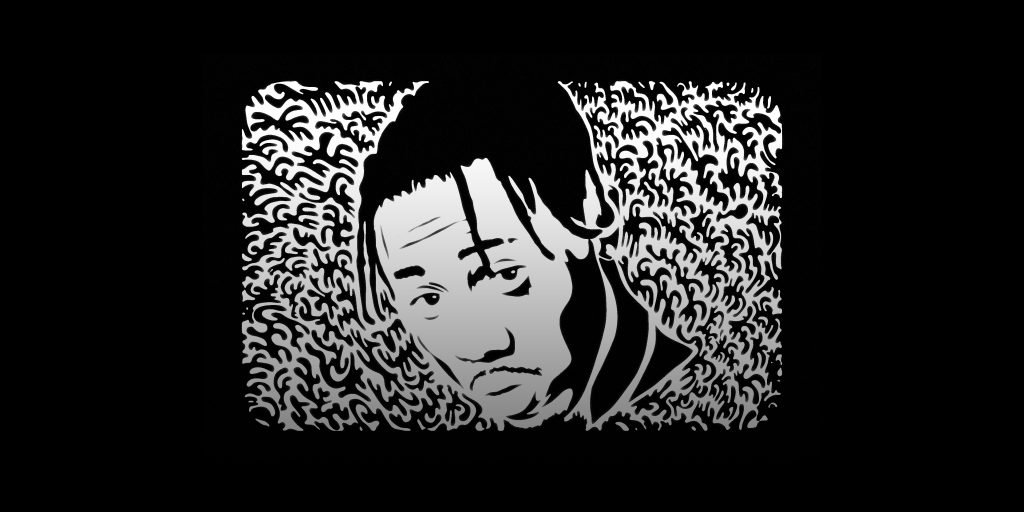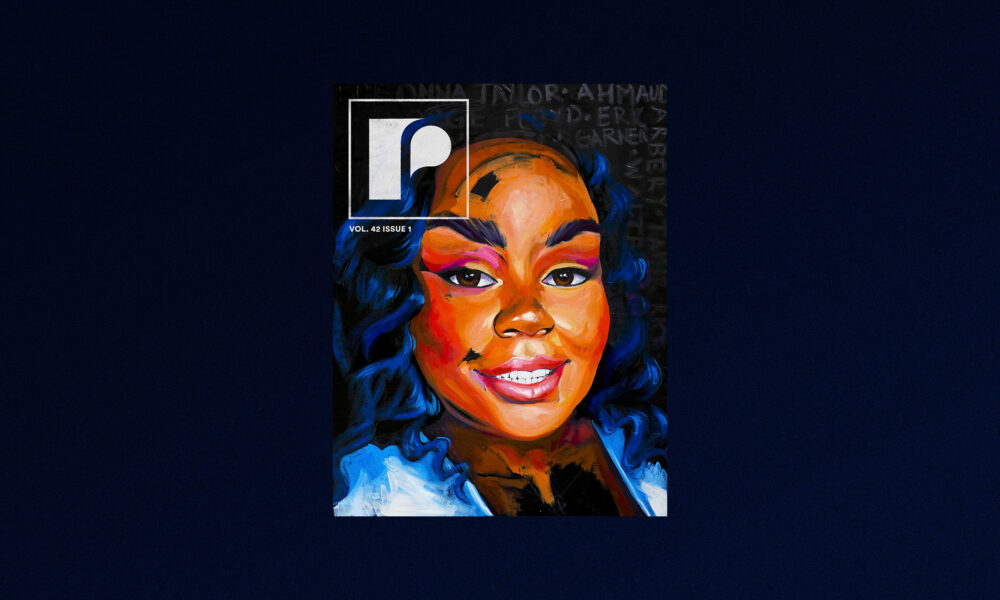Christopher Goodwin was in his senior year of high school when he began falling out of love with the sport that had come to define him.
At 6 feet 2 inches, the Uniondale native was a senior shooting guard for the Brooklyn Collegiate High School varsity men’s basketball team when he started to feel his heart was no longer in shooting hoops.
“I was the kid that actually did wake up at 6 to go run, actually hit the gym earlier than everybody else,” Goodwin said. “You know, that was my thing. But it wasn’t doing it for me anymore.”
In his junior year, he averaged 12 points and 2 assists per game. He scored a season-high 22 points against St. Anthony’s High School. This prowess on the court, combined with his high academic performance, resulted in scholarship offers from a slew of D2 and D3 schools, and even interest from some D1 schools, including Boston University, Weber State University, Loyola University Chicago and Bucknell University.
He would eventually decide to attend Bloomfield College in September of 2018 on the highest scholarship the school had ever awarded an athlete.
“I was covered for four years,” Goodwin said. “All I had to do was make layups.”
During his transition from high school to college basketball, Goodwin spent more time in a Brooklyn recording studio than the gym.
He battled with feeling unfit for the sport.
“I don’t think I got the passion certain people do for this… like how I used to,” he said.
“It’s just a bad week,” his father would say to reassure him, but Goodwin disagreed. “It’s deeper than that.”
Upon his arrival at Bloomfield College, things were somber. He barely socialized, seldom leaving his dorm except for class and basketball, returning at times tearful and angry. On campus, Goodwin was constantly coached on how to dress around certain people, how to speak to certain coaches and how to act. At home he was being told how he should chart his future, and although his parents gave this advice with his best interest in mind, it wasn’t in his personal interest.
Desperate phone calls home were met with encouragement to stay and tough it out.
“You can’t do this,” his parents said. “You’re supposed to be the one that goes to college for free.”
He was effectively done.
Goodwin’s strife also affected his practices, resulting in lackluster performances. His teammates questioned why he had been given such a large scholarship.
He agreed.
“These guys are so passionate about what they’re doing,” he said. “They love this thing and I’m someone who doesn’t appreciate it. So I don’t deserve to be here.”
Goodwin’s feelings boiled down to one simple question: “If I was to be gone today… would I be happy with what I was doing?” At that point, the answer was no.
“I want to die pursuing some shit I actually wanted. I want to at least try.”
He decided to pour his all into rap the same as he had done with basketball.
Goodwin’s love for rap began from the early age of 8. “I would study rap and take it as seriously as schools would want you to be with textbooks. I did bar breakdowns, syllable counts, researched and practiced abundant styles of poetic rhetoric and studied the greats and their delivery.”
One such example for Goodwin is the opening line in Nas’ song “Nas Is Like.”
“Freedom or jail, clips inserted, a baby’s being born
Same time a man is murdered — the beginning and end”
“In a complex way, Nas speaks to life cycles,” Goodwin said. “There’s tragedy in death, but at the same time there’s beauty in new life. Also, the line “the beginning and end” can be related to reincarnation or the soul being infinite .”
Some of his other influences range from Nas to George Mulligan, Jay Electronica to Miles Davis, Joey Bada$$ to Bill Evans, The Wu-Tang Clan to Sade, Griselda to Gil Scott Heron.
“It takes the right ear to hear how brilliant some of these artists are — these guys are like modern-day Shakespeares.”
This close-listening approach allows him to pick up on more than the casual listener. “If you really sit with their music you will hear how they construct complex philosophical and at-times existential rhymes that make you stop and think.”
After a trying semester and a lot of introspection, Goodwin quit the Bloomfield College men’s basketball team in January 2019.
This decision would send him back to his family in Brooklyn, where he had to earn the rap success he wanted bit by bit. There would be no more coasting on layups alone. His friends, who he thought would be there for the long haul, abandoned him. Goodwin also faced indifference from his family members when he told them of his issues and aspirations.
“I ain’t gonna believe in shit you doing until I see something,’ his grandmother told him.
It was around this time that he formed his alias, “Ja’King The Divine”. Ja’King, the name he was almost given at birth, had spiritual connections to the Five-Percent Nation — a group that believes 10 percent of the people of the world know the truth of existence, and those elites opt to keep 85 percent of the world in ignorance and under their controlling thumb. The remaining 5 percent are those who know the truth and are to enlighten the rest.
“I felt that using that name made me closer to my culture and roots even if I’m not a Five-Percenter myself.” He crafted himself in this image.
“I think that’s where the enigma in me comes in because it’s an ‘if you know you know’ type of thing on a spiritual tip… I like the idea of enlightenment and proximity to God through experience and cognitive development.”
Returning to Uniondale from a stay with his mother in Durham, North Carolina, Goodwin reconnected with an old friend.
They grew up playing basketball together at Benjamin N. Cardozo High School in Bayside, Queens. His friend’s troubled home life would eventually force him to drop out.
In March of 2019, Goodwin posted the music video to his song “Mind Game” from his first mixtape, GEM$ EP. The friend reached out to him on Instagram in disbelief at Goodwin’s raw ability as an artist and MC. A week later, they got together to catch up and wound up talking about music. He produced beats and offered his services for a collaboration. “We can really cook together and make everything from scratch in your basement,” he said.
They spent the following three weeks brainstorming ideas and creating music.
As they spent more and more time together, he would have what Goodwin described as “schizophrenic episodes” in which he would bring up his dead mother. He was also insecure about his abilities and had a contagious anxiety that made Goodwin feel uneasy. He would falsely accuse him of using him only for music and not caring about him. “We don’t have to work together or anything,” Goodwin told him. “I’m not trying to use you.” By the end of their chaotic sessions, they had created a 14-track mixtape.
Matters came to a head when Goodwin and his friend had an argument about Goodwin’s girlfriend’s presence during recording sessions. He accused Goodwin of trying to show him up and make him feel like less of a man. Goodwin called the collaboration off, and they officially separated. His friend disappeared with the mixtape on his laptop.
Goodwin reached out to him, asking for the files — he planned on finishing and releasing it himself. In an angry rebuttal, he told Goodwin that he sold the laptop with the beats still on it. He didn’t even save them on a thumb drive. “I needed bread,” he said.
He moved to Atlanta.
Before he left, he told Goodwin, “You can rap or whatever, but you don’t have any substance in your music.”
Boy was he wrong.
Goodwin put his head down and created his debut album, Growing Pains.
He found a job, registered for classes at Nassau Community College and got even more serious about his music. He worked for the money to finance his performances and studio time, and to purchase beats. He also began researching branding — how his name could be tied to his image and the principles he stood for. At Nassau, he met like-minded people who were studying music, like Sean Valentine (@soundvalentine) who would help produce Growing Pains. Kedar Nestor-Ulysse (@autheniq_), another Nassau student, would become good friends with him, collaborating on their song “WOO-SAH.” Goodwin also sharpened his business acumen to avoid any financial pitfalls, which are all too common for musicians.
Goodwin released Growing Pains on October 25, 2019 to high acclaim within his local community of artists and fans.
Within the underground scene, he received recognition from Milo The Cat, a well-known New York MC. His music began to circulate more as he was reposted by popular Instagram rap pages like @hiphop_pioneers, @bennyonthebeat, @ughhblog, @artistspot_, @escape.realitytour and @grindorstarveshowcase. In September of 2019, he performed at an open mic event at Stony Brook University that unlocked his confidence and aided his stage presence. He was invited to perform at a show in Buffalo, NY for the Buffalo East Coast Connect Show and at the popular New York City club Sounds of Brazil. He even met well-known rapper Westside Gunn, from the rap supergroup Griselda. To him, this was further proof that his hard work and dedication to the craft was paying off. He was finally getting recognition and respect from the scene that inspired him since childhood.
Goodwin’s relationships with his parents improved as they saw him being productive in school and heard the quality of music he was creating.
“I almost cried listening to your album, because we never knew you took it this seriously,” his step-mother told him.
It was a complete surprise to his family, who watched him give up substantial scholarship money to pursue what they saw as a hobby. They heard substance in his music and appreciated his art.
Upon the album’s release, Goodwin began marketing Growing Pains on social media and designing merchandise. To his surprise, he was contacted by fans as far away as Australia for hoodies and music. The success of the album was truly unprecedented for him, and has fueled him to do even more. He has since started a collective of other musicians and creatives called Divine Records, and released a mixtape, THE Marvelous R7ght Wrist. His sophomore effort, Pray for New York, is out now on all streaming platforms.
“Everybody hears the lyrics and they interpret them differently, but they still feel it,” he said. “They all take from it what they want and have a different favorite song or line. That’s how you know you’ve got something — at least to me.”




Comments are closed.